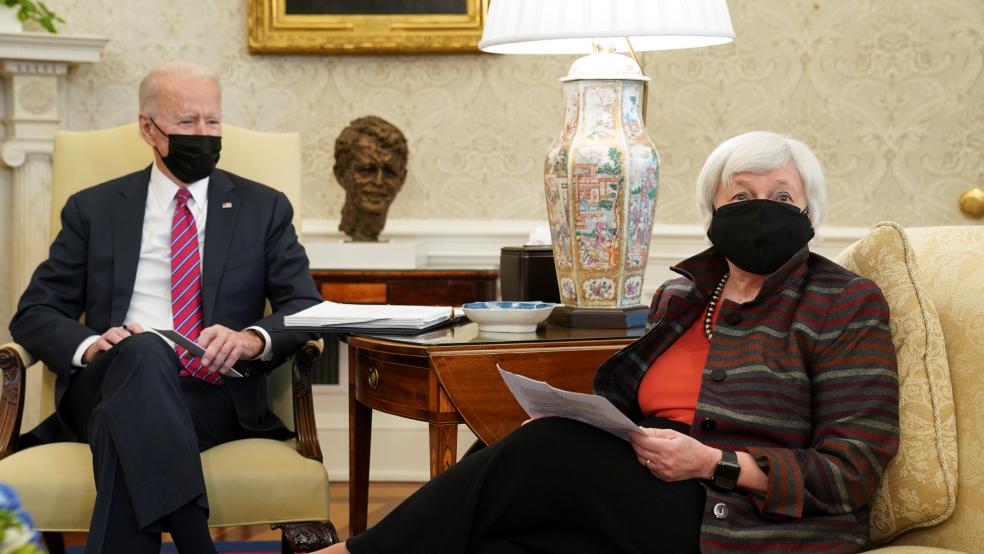As lawmakers in Congress battle over the fate of President Joe Biden’s ambitious domestic agenda, Treasury Secretary Janet Yellen on Tuesday offers a vigorous defense of his plan to spend roughly $4 trillion over a period a of years on a wide variety of social and environmental programs.In an op-ed published by Yahoo Finance, Yellen argues that for decades the U.S. has underinvested in basic social goods, ranging from child care to education to infrastructure, and this neglect has produced “worrying trends” such as declining labor force participation. Biden’s plan, she says would begin to reverse those trends.
"We are now engaged in the most important economic project in recent history: Repairing the broken foundations of our economy, and on top of them, building something stronger and fairer than what came before,” Yellen wrote.
Too much spending? Critics of the Biden plan, including most Republicans and no small number of Democrats, charge that the two infrastructure packages under debate in Congress, if passed together, would push too much federal spending into the economy, risking increased inflation while running up deficits and debt. Yellen says there are three reasons she is not concerned:
* Low interest rates: “If we are going to make these investments, now is the right time,” Yellen writes. “Real interest rates are currently negative, and payment on our public debt, as a share of the economy, is expected to remain below historic levels for at least a decade.”
* Fiscally responsible: Biden’s plans “proposals are fiscally responsible,” Yellen says. “The investments are spread out over time, and total around one percent of our gross domestic product over the course of the decade. They’re also paid for over the long-term through a reformation of the tax code that will make it fairer.”
* High opportunity cost: “Most importantly, we have to consider the opportunity cost of not making these investments,” Yellen argues. “We’ve grown used to America as the world’s greatest economic power, but we aren’t destined to stay that way.” Emphasizing the point, she says “the crucial question isn’t ‘What if we make these big investments?’ It is: “What if we don’t?”




